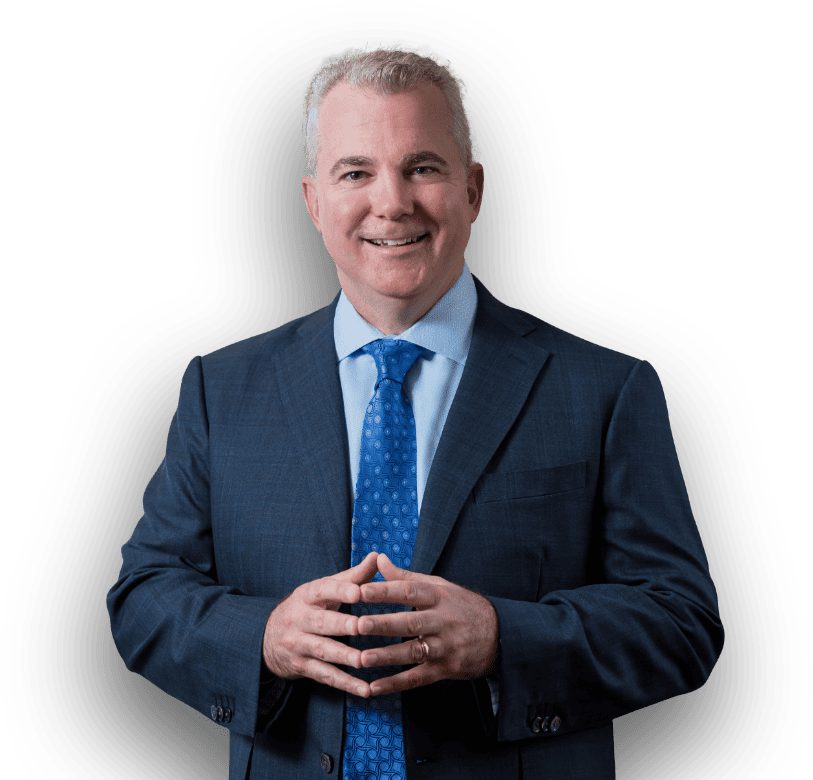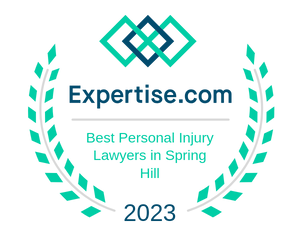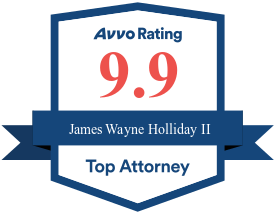The scene of a motor vehicle accident is often messy and chaotic. There can be multiple vehicles involved and many victims. Sorting through the facts and evidence to discover what happened is not always an easy task and can give rise to many complications.
Determining fault following a car accident is a critical step in the insurance claims process. A fault determination can affect the compensation available to a victim and who they may seek compensation from following a car accident.
If you suffered injuries in a car accident in Brooksville, you need to consult an experienced Florida car accident lawyer for help holding the other drivers involved accountable and protecting your rights and interest if the at-fault driver's insurance company tries to blame you for the crash.
Is Compensation Available to Victims of a No-Fault Car Accident?
Florida is a no-fault state when it comes to insurance claims following a motor vehicle accident. There is often some confusion about what it means to be in a no-fault jurisdiction. No fault does not indicate that negligence is not the possible cause of a car accident.
Rather, no fault is simply a term that indicates when there is an accident within Florida, all parties involved may go through their respective insurance coverage to seek compensation for medical bills and personal injury.
Fault or liability for an accident does not prevent a person from seeking compensation for these particular damages from their insurer, such as the cost of medical bills and loss of wages.
Can Who Is at Fault Affect the Type of Compensation Available?

The no-fault system of law applies only to losses relating to personal injury protection (PIP) coverage, which includes medical expenses and certain income losses. Additionally, in a no-fault claim, the claimant can only seek losses up to the policy’s limits, which in Florida is a minimum of $10,000.
Although anyone in a car accident who suffers injuries can claim compensation, the situation and at-fault party may limit the damages available.
If you are a victim of the negligence of another party during a crash, you can seek compensation through your insurer for certain damages but can also seek compensation from the at-fault party’s insurer or from them directly under the law. The amount of compensation available to you and the damages available will depend on the accident, your injuries, and the impact your injuries may have on your life going forward.
Examples of car accident damages can include:
- Medical costs
- Income loss
- Future medical and income losses
- Pain and suffering
- Property damage
Brooksville Car Accident Statistics
Brooksville and surrounding areas, including Spring Hill, are part of Hernando County. With major roads and interstates crossing through the area, such as I-75, US 41, US 19, and State Road 589, car accidents are common.
Crashes can occur amongst residents that live in the Brooksville area, travelers passing through, or tourists who frequent the state year-round. The Brooksville area alone accounts for over 2,500 motor vehicle crashes, resulting in 40 fatalities and over 2,100 individuals suffering injuries.
Regardless of the fault determination in a Brooksville car accident case, you can benefit from assistance from a car accident attorney. A lawyer can help you determine your losses and who may be responsible for paying those losses if you suffer an injury in a motor vehicle crash. No-fault car accident claims allow any party that sustains an injury in a collision to seek compensation for certain expenses after the accident.
How Does the Insurance Company Determine Fault Following a Car Accident?
Determining fault is part of the insurance claims process. During an insurance claim, an insurer will investigate the crash and consider the evidence available to them, such as police reports, the testimony of witnesses and involved parties, photographs, etc.
Insurance fault determinations can find that one or multiple parties played a part in the events and negligence leading to a car accident. As part of the fault determination, an insurer can indicate who they believe is primarily responsible and liable for the damages.
The insurance company’s determination can influence the insurance claims process and what compensation they may offer you and other victims of the crash. Suppose you, however, hire a car accident attorney to represent you in the matter. In that case, they can conduct their own independent investigation as to the cause of the crash and your resulting damages.
Your attorney can then communicate and negotiate with the insurance company about any additional evidence their investigation reveals that may be relevant to a fault determination or the value of your damages.
If, with your lawyer’s help, you cannot reach an agreement with the insurance company regarding damages and fault, your lawyer could recommend you file a lawsuit in court against the insurer or the at-fault parties personally. When a court becomes involved in a car accident claim case, a trial may occur.
At the conclusion of the trial, the court can make a final determination as to fault and the amount of damages to the victims of the case, if any.
Common Causes of Accidents Due to Negligence of Another Driver
Car accidents do not just happen out of the blue. One or multiple forces and actions often occur, resulting in a collision between vehicles. Behind most accidents is the negligence of one or multiple parties leading to the crash and the resulting damage and injuries to people and property. Attentive, responsible drivers can prevent most car crashes.
Negligence is a key factor in many car accident cases and can come in many forms and scenarios. While the cause of an accident may be apparent in some cases, in others, it may take some time and thorough investigation to reveal the cause of a crash and who may be liable.
Typical scenarios where the negligence of another driver causes a car accident:
- Distracted driving
- Driving while under the influence
- Speeding
- Reckless driving
- Failure to follow traffic laws
How to Prove Negligence in a Car Accident Case
Here's how you can prove negligence:
- Establish Duty of Care: The first step in proving negligence is to establish that the other driver had a duty of care. This means they had a legal obligation to drive safely and responsibly to avoid causing harm to others.
- Breach of Duty: Once your attorney has established a duty of care, they must then prove that the other driver breached this duty. This could be through reckless driving, distracted driving, or violating traffic laws.
- Causation: After proving a breach of duty, your lawyer must show that this breach directly caused the accident and your resulting injuries. This often requires evidence such as witness statements, photographs, and police reports.
- Damages: Finally, your attorney must demonstrate that you suffered damages as a result of the accident. This can include medical bills, lost wages, and pain and suffering.
Proving negligence can be complex, so you must work with an experienced personal injury attorney. They can help gather the necessary evidence and build a strong case on your behalf.
Injuries to Victims of Motor Vehicle Accidents
A car crash can cause a violent chain of events that have the potential to result in serious to life-threatening injuries and fatalities. As a car accident victim, you are susceptible to many injuries that can impact your health and future.
Depending on the seriousness of your injuries, you may need intensive medical care, surgery, therapy, or interventions to help you heal and to retain as much function as possible following a crash. The type of injury you sustain can influence the amount of compensation available to you.
Additionally, how those injuries affect your daily life and your future as you recover may also affect the amount of money you may be eligible for.
Common car accident injuries:
- Head and neck injuries
- Back injuries
- Traumatic Brain Injury (TBI)
- Spinal Cord Injury (SCI)
- Broken bones
- Torn tendons, ligaments, or muscles
- Lacerations and bruising
- Internal bleeding or injury to organs
- Burns
- Dislocations
- Sprains or Strains
- Disfigurement
Dealing With Insurance Companies in a No-Fault State
There is a misconception at times amongst car accident victims that because Florida is a no-fault state dealing with the insurance companies for the compensation of your losses should be an easy process. Unfortunately, that is not the case. Whether you are going to file a claim with your own insurance company, the at-fault party’s insurer, or both, the process is often tedious and time-consuming.
An insurance company does not make big profits by paying out every claim at full value, and many victims may lose out on significant compensation when they are unaware of their rights under the law or their ability to negotiate a settlement with the help of a car accident attorney.
What to Do After a Car Accident?
When a car crash happens, you should take the time to calmly consider your options and think about what you can do to help protect yourself as the potential victim of another party's negligence. What you decide to do in the moments, days, and weeks following a crash will set the stage for the recovery of your losses and compensation.
Here are some steps you should take following a car accident in Brooksville someone else caused:
- Ensure Safety: First and foremost, check for any injuries to yourself or other parties involved. If anyone is injured, call 911 immediately.
- Move to a Safe Location: If possible, move your vehicle out of the flow of traffic to a safe location. If you can't move your car, turn on your hazard lights to warn other drivers.
- Call the Police: Even for minor accidents, it's important to have an official police report. The police will document the scene and gather information that may be crucial later.
- Exchange Information: Exchange contact and insurance information with the other driver. This includes names, addresses, phone numbers, insurance companies, and policy numbers.
- Document the Scene: Take photos of the accident scene, including damage to vehicles, road conditions, traffic signs, and any visible injuries. If there are witnesses, get their contact information and statements if possible.
- Seek Medical Attention: Even if you don't feel injured, it's a good idea to seek medical attention. Some injuries may not be immediately apparent. Additionally, you will need documentation that you suffered an injury and received treatment to file an injury claim.
- Stay Involved in Your Medical Treatment: Staying the course of your medical treatment under the advice of your medical providers will help you through your recovery by giving you the best chance at healing. Also, insurance companies and courts may look at your treatment timeline and recovery progress to verify if you are doing your part to contribute to your recovery instead of potentially causing delays or complications.
- Notify Your Insurance Company: Report the accident to your insurance company as soon as possible. They'll guide you through the process of filing a claim.
- Consult an Attorney: If you've been injured or the damage to your vehicle is significant, it may be beneficial to consult with a personal injury attorney. They can help protect your rights and ensure you receive fair compensation.
Remember, every car accident is different, so use your best judgment when following these steps.
Call a Car Accident Lawyer for a Free Consultation
The reality is that while you are trying to recover and heal from the trauma and painful injuries from a crash, the last thing you want to do is worry about how you will seek compensation and deal with phone calls from insurance representatives. The best thing you can do following an accident is to contact a car accident lawyer.
A personal injury lawyer can relieve much of the stress that follows a crash. When you hire an attorney to represent you in a car accident insurance claim and case, you can rest assured knowing they will handle the often overwhelming nature of dealing with such a stressful event.









